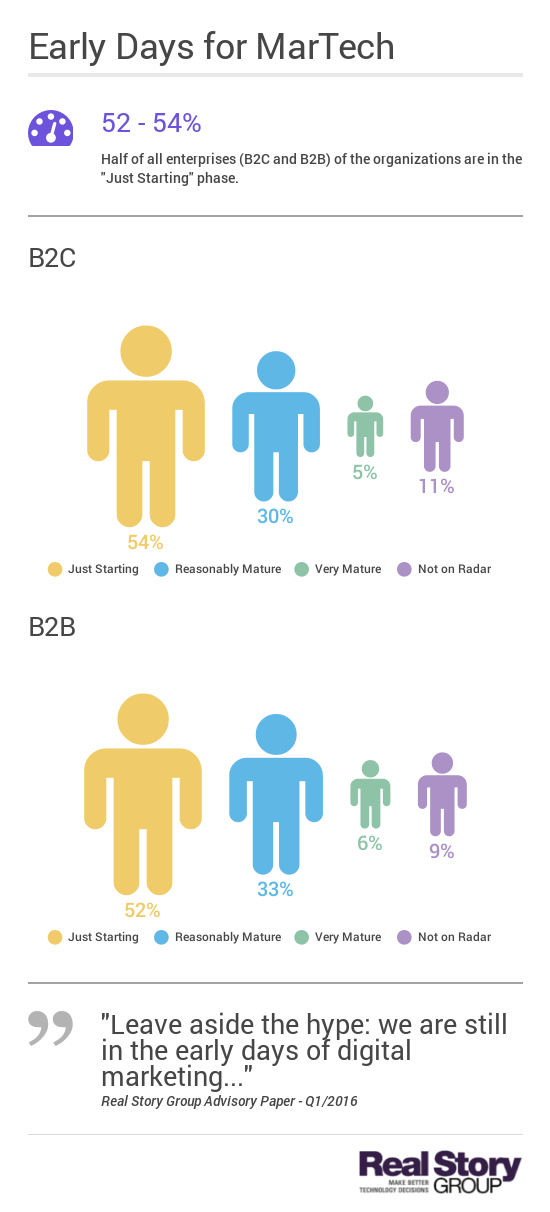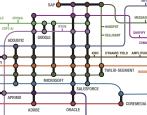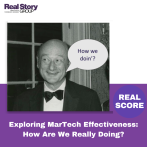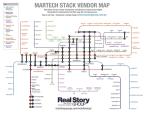Why B2B versus B2C matters for Marketing Technology
RSG's Digital Marketing Technology Research evaluates an array of campaign and lead management tools. We look at the requirements of both Business to Business (B2B) and Business to Consumer (B2C) marketers, and evaluate whether any single tool is a good fit for B2B or B2C scenarios. But how different are they really?
For starters, I'll note that the customer maturity level between the two cohorts doesn't differ much. RSG's Digital Marketing Technology Survey (get a complimentary copy) reveals that the majority of the organizations are in the "Just Starting" phase for marketing automation, with little difference between B2B and B2C marketers.

Figure: Marketing Automation Maturity. 52% B2B and 54% B2C marketers say they are just starting. Source: RSG Digital Marketing Technology Survey 2016.
Yet, as you embark on these projects and look to select the right software, it's useful to understand the differences between B2B and B2C MarTech tools.
For example, both B2B and B2C marketers are looking to leverage the unparalleled amount of data available to improve the marketing effectiveness. But the same criteria will not be equally important for both B2B and B2C marketers.
The characteristics of B2B sales include:
- Larger ticket size of product / service
- Multi-year contracts
- Procurement decision involves multiple teams
- Longer sales cycle
- Marketing and Sales teams are both involved (from the seller side)
B2C sales characteristics include:
- Smaller ticket size
- One-off purchase (but can include repeat purchase / renewals)
- Individual decision makers
- Shorter sales cycle (including real-time)
- Sale can be consummated online
Of course there are several layers of possible nuances underneath this high level of generalization, but it gives you a general idea that B2B and B2C marketing/sales processes have very differing requirements. Consequently, software tools need to cater to this differentiation.
Some companies are even B2B2C - that is, they sell directly to consumers or sell to consumers via a distribution channel. Think financial services or e-Commerce or several other product categories which have distributors. MarTech tools have to cater to some additional requirements there but that's a topic for a different day.
Both B2B and B2C center around a customer/prospect database, but the B2C dataset is likely to be many orders of magnitude larger than a B2B list. B2B lists are typically based on/tethered to a CRM tool while B2C databases are often separately maintained. So, integration with CRM becomes an important selection criterion for B2B.
System performance (e.g. campaign emails processing with millions of records) at scale also becomes a big driver for B2C marketers. B2B marketers want to capture much deeper insights about a relatively smaller set of prospects while B2C marketers want to capture a shorter set of parameters about a much larger list of consumers.
Segmentation is important to both types of marketers, but multi-channel customer journeys (web, mobile, telephone, social) motivate B2C marketers more. Personalization — often in real-time — also tends to be more important for B2C marketers.
B2B marketers meanwhile look for a more elaborate lead nurturing approach. B2B marketers pass ultimately qualified leads to their sales colleagues - so lead scoring and qualification functionality comes to fore. B2B customer content needs are more extensive and so content marketing is a key B2B requirement, while e-Commerce integration is key for many B2C use cases. B2C marketers look for integration with a Data Management Platform (DMP) while a B2B marketer prioritizes integration with a Webinar platform or other content marketing tools.
At the end of the day it's all marketing, but as you can see, B2B and B2C priorities and approaches differ in the digital arena. This drives/calls for different product architectures, different integration points, and different functional emphasis when it comes to campaign management / marketing automation software. We're happy to help you think through your technology options.








